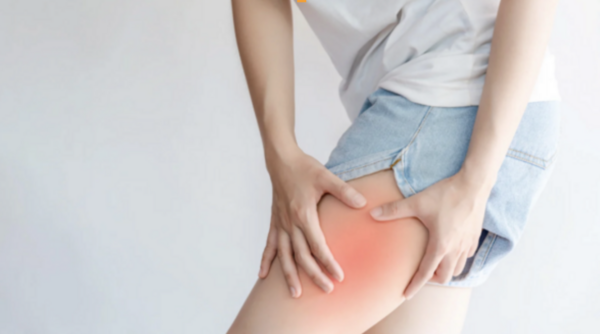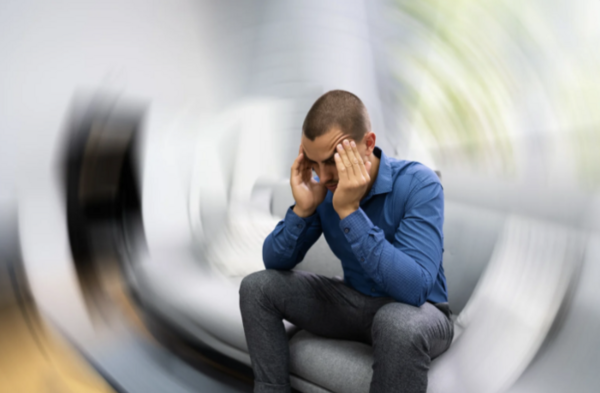Osteopathy: A natural method for improving sleep disorders
Sleep disorders are increasingly common these days, affecting many people's quality of life. Osteopathy can be a natural and effective approach to help overcome these problems.
Osteopathy, defined as an approach that focuses on the link between the body's structure and its proper functioning, can play a crucial role in improving sleep by acting directly or indirectly on several fundamental parameters of sleep cycles.
Sleep disorders in figures
Sleep disorders are a common problem in France. According to the INSV/MGEN 2023 survey, 37% of French people are dissatisfied with the quality of their sleep, with a higher prevalence among women (44%). What's more, 42% of French people suffer from at least one sleep disorder, mainly insomnia (20%) and sleep-wake rhythm disorders (17%). It is also mentioned that average sleep duration continues to fall, with an average of 6h58 on weekdays, and a reduction in weekend sleep time of 34 minutes compared to previous years.
What causes sleep disorders?
Sleep disorders can have a variety of causes, and they manifest themselves in different ways. Here are some of the most common causes:
- Dyssomnias: These include insomnia (temporary or chronic), hypersomnia (excessive sleep), sleep-wake rhythm disorders, medication- and alcohol-related disorders, and narcolepsy.
- Parasomnias: These include phenomena such as confusional arousals, night terrors, sleepwalking, bruxism (teeth grinding), sleep disorders associated with REM sleep, and nocturnal enuresis (urinary incontinence).
- Psychological and neurological causes : Some sleep disorders may have a neurological or psychiatric origin.
- Factors specific to young people and adolescents: Biological and hormonal changes linked to puberty, hyperconnection to screens, lack of physical exercise, unbalanced diet and a mismatch between weekday and weekend schedules can influence teenagers' sleep.
- Sleep disorders linked to gastric reflux: Gastro-oesophageal reflux can disrupt sleep by causing regurgitation and burning sensations.
- Impact of confinement and covid-19 : Periods of confinement and the health crisis increased sleep disturbance, often linked to reduced physical activity, increased anxiety and persistent disturbance in some covid-19 patients.
Osteopathy: a solution for sleep

Reducing stress and tension:
Osteopathy aims to help the body find or regain balance by working on tissue tensions (muscles, fascias, visceral organs) and structural joint imbalances. By working on these tensions, osteopathy can help reduce the impact of stress on the body's physiology, thus promoting relaxation and sleep.
Structural alignment
Your osteopath focuses on restoring the body's structural balance. Deficits in mobility, sometimes subtle, can influence the nervous system by sending contradictory neurological information to the brain (exaggerated perception of pain, pervasive manifestation of stress), which can seriously disrupt sleep cycles. By acting on these imbalances, osteopathy can promote optimal functioning of the nervous system.
Improving traffic flow
Osteopathy can also act as a "booster" for certain physiological elements, either in a local, targeted way (release of myofascial tension or muscular contracture), or in a more global way, for example by acting on circulation, thanks in particular to so-called "rhythmic" techniques. By promoting optimal blood circulation, osteopathy contributes to a better distribution of oxygen and nutrients throughout the body, including the brain, which can have positive effects on sleep quality and the regulation of sleep-wake cycles.
Managing physiological disorders
Some sleep disorders can be linked to specific physiological problems, such as pain that makes it difficult to maintain a normal sleeping position. Osteopathy, by targeting these problems, can help relieve symptoms and promote an environment conducive to restful sleep.
Promoting relaxation
Many osteopathic techniques are designed to promote muscle relaxation. This can be particularly beneficial for people suffering from insomnia linked to excessive muscular tension. If insomnia is linked to temporary or recurrent anxiety, osteopathy can also be an excellent complement to the relaxation techniques used in sophrology or hypnosis, in particular by working on the diaphragm and respiratory mechanics as a whole, which are fundamental to the treatment of this type of problem.
Osteopathy can therefore be a valuable adjunct to improving sleep quality, thanks to its holistic approach to treating sleep disorders by targeting the physical aspects of the body. By working on relaxation, balance and circulation, it can help restore the balance needed to promote restful sleep and improve quality of life.
Other techniques to help with sleep disorders
To improve sleep problems, there are several tips and strategies in addition to osteopathy. Here are just a few examples:
- Sleep hygiene : Adopt a regular routine before bedtime to signal to your body that it's time to relax and prepare for sleep.
- Sleeping environment: Make sure your bedroom is dark, quiet and cool. Use blackout curtains, earplugs or sleep masks if necessary.
- Reduce stimulants: Avoid caffeine, nicotine and alcohol, especially in the hours before bedtime. These substances can disrupt sleep.
- Avoid screens before bedtime : The blue light emitted by screens can interfere with your biological clock and disrupt your sleep. Try to turn them off at least an hour before bedtime.
- Regular physical activity: Regular exercise can help improve sleep quality, but avoid strenuous exercise just before bedtime.
- Balanced diet: Eat lightly in the evening and avoid heavy or spicy meals that could disrupt your sleep.
- Stress management: Practice relaxation techniques such as meditation, yoga or deep breathing to reduce stress and promote sleep.
- Create a bedtime routine: Go to bed and get up at the same time every day, even on weekends, to regulate your internal clock.
- Limiting naps: If you have trouble sleeping at night, try to limit or avoid naps during the day, especially those in the late afternoon or evening.
Damien Fabre
Osteopath D.O
2 rue Alexis de Tocqueville
78000 Versailles




